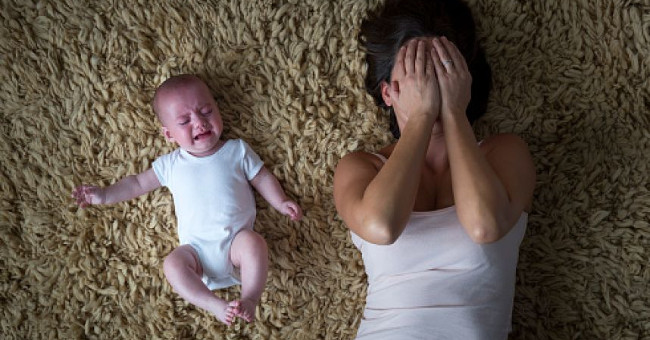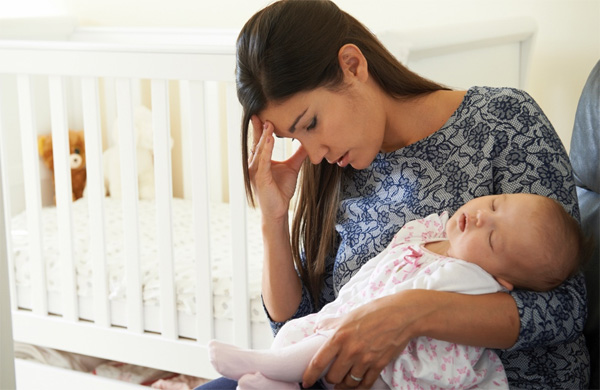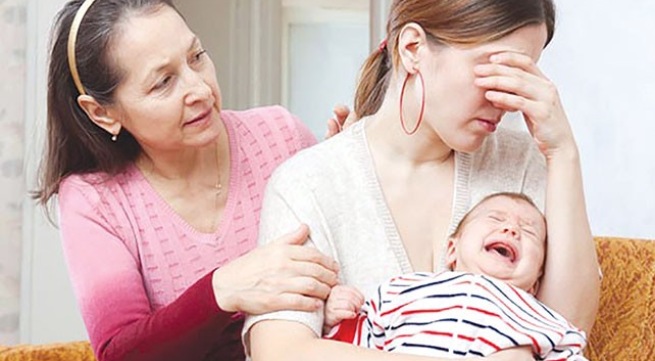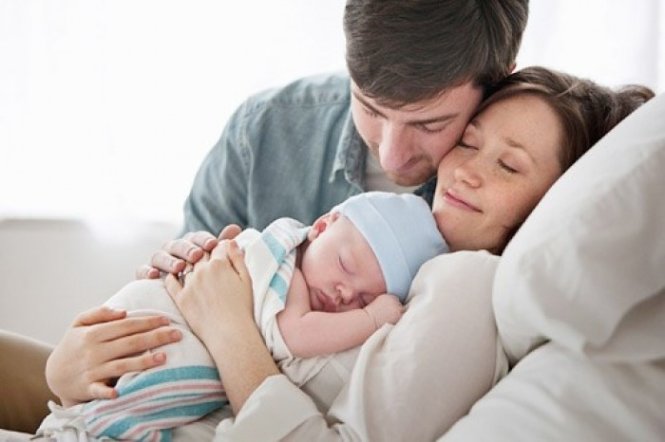Postpartum depression: Causes, signs of early identification and prevention
Postpartum depression is a condition related to thoughts and feelings of fatigue, boredom, anxiety that appear after birth. Women with postpartum depression often have a state of fear that their children will be harmed and that they are bad mothers themselves.
- Things to know before becoming pregnant
- New discovery: The female brain shrinks after pregnancy
- Food tips for pregnant women while pregnant with twins

Postpartum depression may be mild, moderate or severe, may be transient or persistent. The disease can be treated and in some cases preventable.
Causes of postpartum depression
- Hormonal changes: After birth, a sudden decrease in estrogen and progestrogen contributes to the cause. Thyroid hormones rapidly decrease causing fatigue and depression.
- Changes in blood volume, blood pressure, immune system and metabolism lead to fatigue and emotional changes.
- Family conflict, financial problems, lack of help from relatives.
- Difficulty in taking care of the baby. Many mothers feel stressed, sleepless, worried about their ability to look after their babies. Since then feel lost interest in living and losing control of your life.
- Genetic factors: family members with depression (mother, sister, father) are at high risk.

Those who are prone to postpartum depression
People with a history of postpartum depression often have a 50% chance of relapse. Or people with a history of depression during pregnancy are also at risk of postpartum depression (25%). People who stop taking depression medication during pregnancy can fall back into depression to 85%, and if they continue to use it, only 25% will relapse. This condition, if prolonged, will greatly affect mother and baby.
- Age <18.
- Stressful events in the past: illness, infertility, unemployment.
- Lack of support and sympathy for relatives, especially husbands.
- Conflict between husband and wife, conflict with mother-in-law.
- Unexpected pregnancy.
- Complications of pregnancy: stillbirth, miscarriage.
- Depression is more likely to occur in the offspring, however, it can still occur in the offspring.
Early signs of postpartum depression
1. Or worry and fear
Mothers who suffer from postpartum depression often feel anxious, alarmed by situations around them, even though they are perfectly normal. They sometimes feel pain or fatigue without finding the exact cause. Occasionally, these mothers lose their temper and cannot control their emotions. This makes them even more stressed.

2. Difficulty sleeping
Most mothers do not have complete night sleep when they give birth. However, depression patients are more difficult, they cannot sleep even when they are asleep. Severe sleep deprivation not only leads to the inability to focus on daily tasks but also creates psychological insecurity.
3. Always feel depressed
For a few weeks after birth, it is perfectly normal for a mother to shed tears and stress (also called "baby blues"). However, if this story lasts longer, surely this mother has fallen into a state of depression.
4. There are thoughts that hurt you or yourself
When falling into postpartum depression, some mothers suddenly thought: "What if I leave the baby in the bath?" Said psychologist Kurzman. Of course most mothers will not doing that action, however, they still feel ashamed and obsessed with their thinking, it is important that, when this thought appears, you must go to the doctor as soon as possible. Your safety and your child's.
How to avoid postpartum depression?
The role of relatives
It can be said that in this sensitive period, the role of husband occupies a very important position. Many husbands think that providing enough material for their wives is enough without being aware of the interest, sharing with action and words of encouragement that can help a wife avoid the risk of depression. More than anyone, husbands, families, relatives . need to be close to sharing with pregnant women in the postpartum period, in order to avoid the unfortunate consequences that may occur.

Encourage, close and share with the pregnant woman about the labor and take care of the baby after birth. Guide pregnant women on breastfeeding.
The mother herself
Try to find yourself a sleep. Try to go to bed earlier if you have to wake up at midnight to feed your baby. Should sleep at noon only 30 minutes.
Talk and share with your friends, family or psychologists to vent your tired feelings. Ask friends and family about their baby care experience.
Live positively, think optimistically, don't let sad things affect your psychology. Remember that you are always the best mother for your child, never compare yourself or your child to others, do not put pressure on your shoulders.